Danielle Sinay
Jul 17, 2021
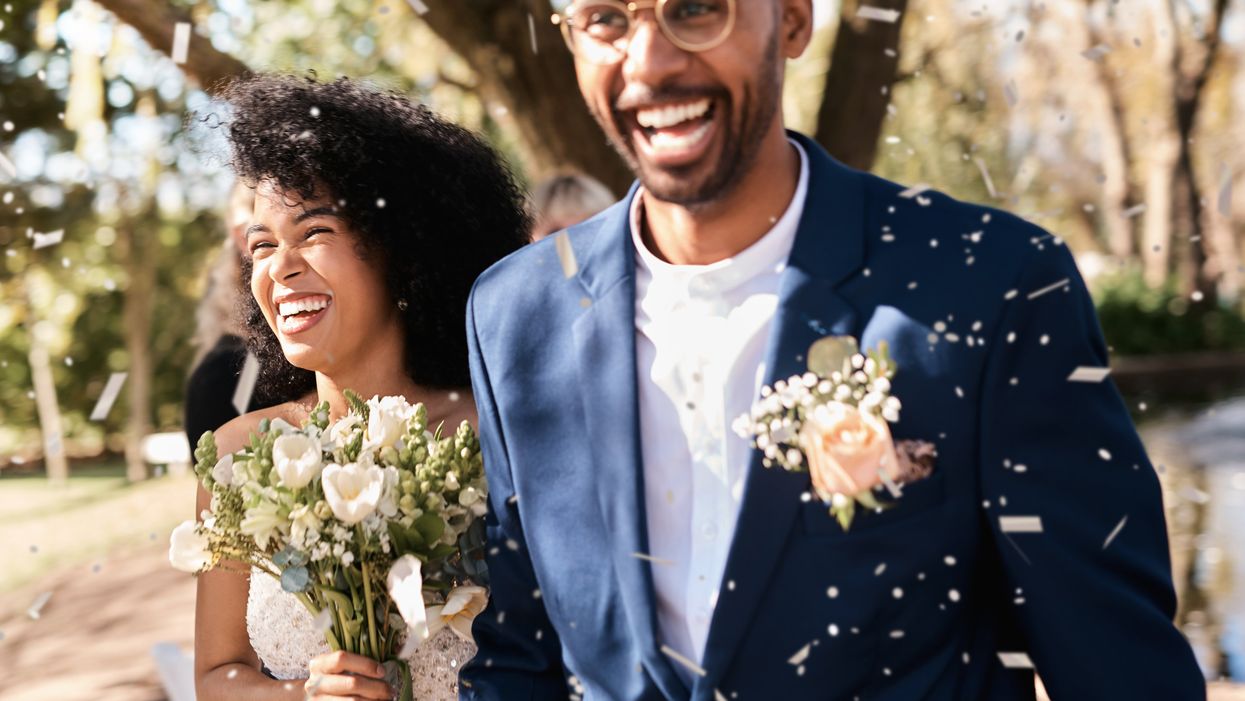
Expect weekday weddings and wild experiences from now on
Getty Images
As Covid vaccination rates increase, so too is the number of couples looking to tie the knot.
On top of the thousands forced to reschedule weddings due to the pandemic, many more have got engaged since the crisis first emerged. And so we’ve found ourselves in a bit of a frenzy, with the next few years’ marriage seasons set to be like none ever seen before.
“I, in addition to all of the other wedding professionals out there, am experiencing true madnessright now,” events planner Jesse Reing told indy100.
The New York and London-based owner of Events by Jesse confirmed there had been a massive uptick in bookings as cities started emerging from months of lockdown.
“We have weddings planned in advance that happen this year, plus all of the postponements. That’s a lot in itself,” she said of the surge in ceremonies. “But on top of that, the overwhelming desire to celebrate anything with family and friends, paired with the fear that things will get bad again, are causing this massive influx of short engagements.”
Hence: The post-Covid wedding boom.
We asked Reing, along with several other professional planners, what the future holds for brides and grooms and which pandemic trends are here to stay. Here’s what we learned:
More weekday weddings
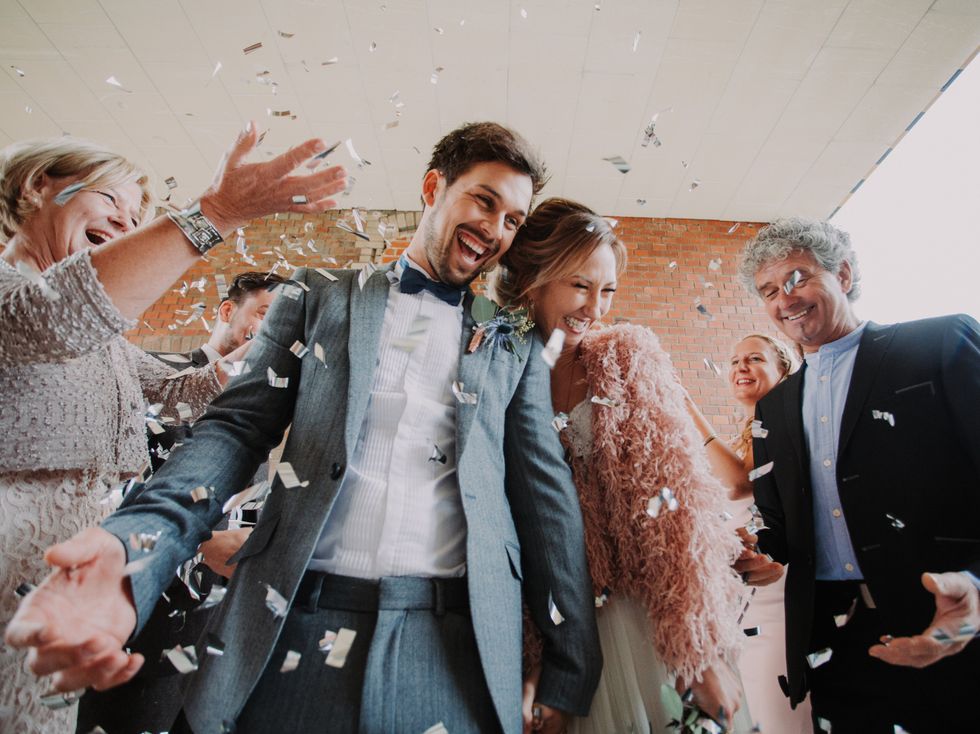
Weddings have typically been held on Saturdays, but the pandemic has pushed several ceremonies somewhere unexpected: to the middle of the week.
“Pre-Covid, couples were quickly deterred by the ideas of Friday and Sunday weddings. Now with the over-saturation of the amount of weddings, we aren’t only seeing more Fridays and Sundays, but weekdays as well,” Reing explained.
“Mid-week weddings are big in 2022,” Larissa Banting, destination wedding planner and and owner of Weddings Costa Rica in San Jose, agreed.
“Dates are booking fast and furious, since 2020 and 2021 dates that have been rebooked are now vying with an influx of couples who have waited to book till things ‘return back to normal’. Days other than Saturday will become popular moving forward as the movement towards less traditional weddings continues.”
Live-streaming the ceremony
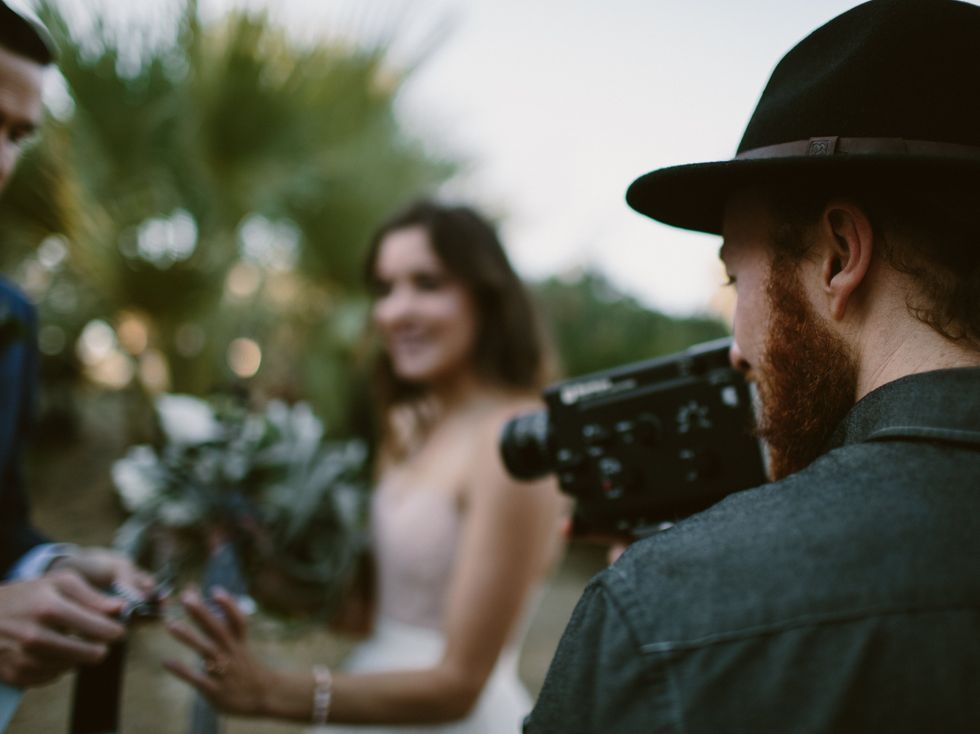
Thousands of couples opted to live-stream their weddings as a temporay alternative to having lots of guests attend the event in person. But now, couples are actually opting to live-stream in additionto in-person parties.
“We might all be sick of video conference meetings, but when it comes to live streaming your events, this has now moved beyond ‘Covid trend’ and into the ‘wedding standard’ category,” said Rena Sweeney, owner of Alchemy Events in New Orleans and Creative Director of NOW Weddings Magazine.
“Many companies and videographers are offering this as a dedicated service that has a much higher quality than your average web streaming from your cell phone,” she added. “The final product is a great way for all of your loved ones to be included, no matter where they live.”
Courtney Lutkus, owner, planner and designer at Simply Radiant Events in Southern California, said the same. “There have been weddings that people have streamed online so the family that can’t travel or does not feel safe to travel can still take part in some fashion,” she explained. “I see this continuing for those who have older family members that might not be able to travel.”
Highly curated guest lists
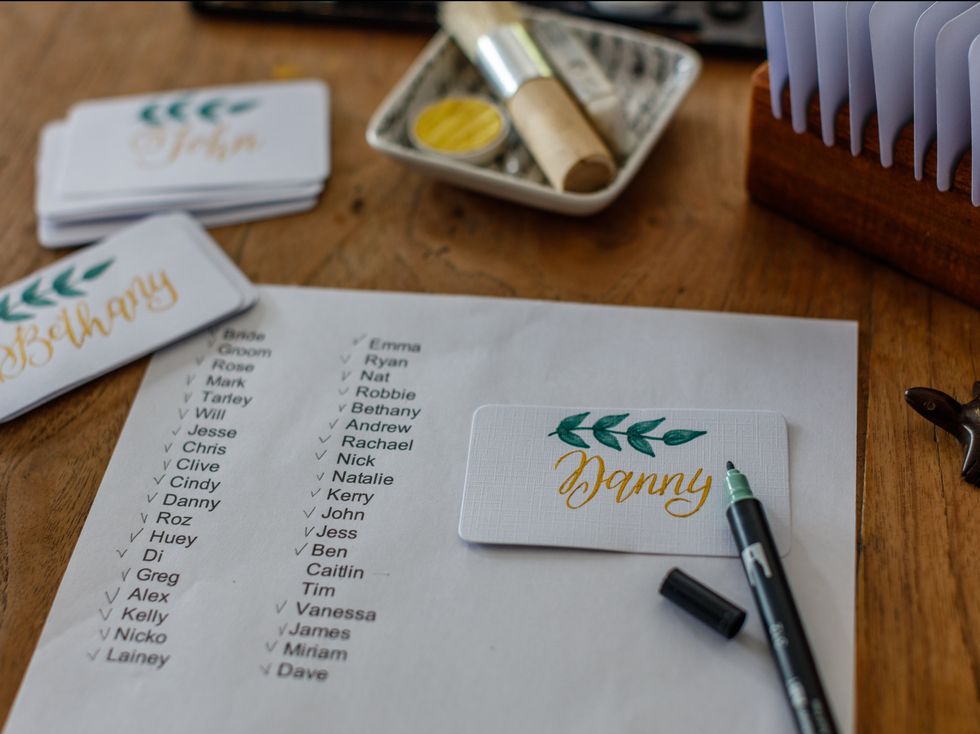
Gone are the days of inviting your mom’s best friend, and her best friend’s best friend’s friend.
“As much as the definition of the ‘traditional’ wedding has evolved into something more modern, there still seems to be an expectation that you should be inviting certain people — 5th cousins, office mates you’ve never spoken to, mom’s friends you’ve never met,” Reing noted.
“I see couples using the pandemic as an excuse to not have to invite the extra 30 people they didn’t want there in the first place. As restrictions get lifted and venues are allowed to operate as normal, many of my clients are happily using Covid as a way to have the wedding they want, without disappointing people.”
And such is the case all over the world. “Couples are opting for fewer people, choosing to invite those who are truly close to them, not only to keep guest numbers down but also to alleviate people from the awkward position of being invited but not feeling comfortable to travel in a pandemic,” Banting said.
Intimate, lower-cost gatherings
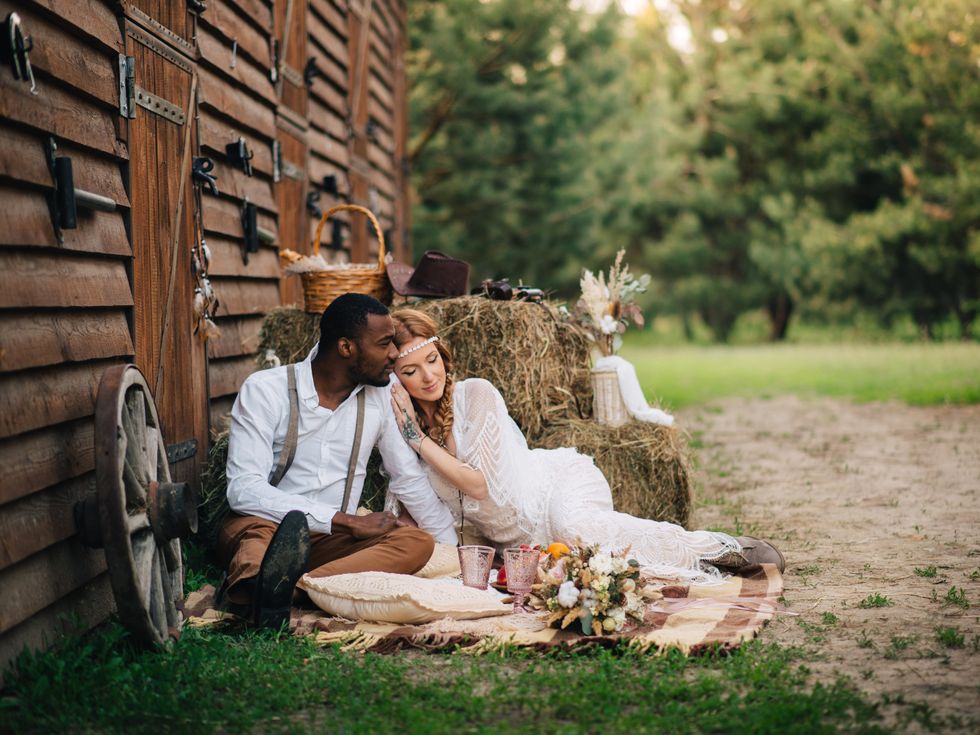
Historically, weddings have pressured couples into spending money they don’t necessarily have, but the pandemic has pushed us to rethink our priorities. “Smaller intimate gatherings will likely be around for a while as they are a way to have a more cost-effective wedding,” Lutkus observed.
Karen Cleveland, etiquette writer and co-author of ‘The New Wedding Book: A Guide to Ditching All the Rules’, agreed. “Small-ish weddings are here to stay,” she said. “The pandemic has given us an alternative path to the arms-race that was previously wedding culture where everything was so extra. By keeping weddings on the small size couples are saving money, saving stress and still having gorgeous, romantic weddings.”
Bidding adieu to buffets
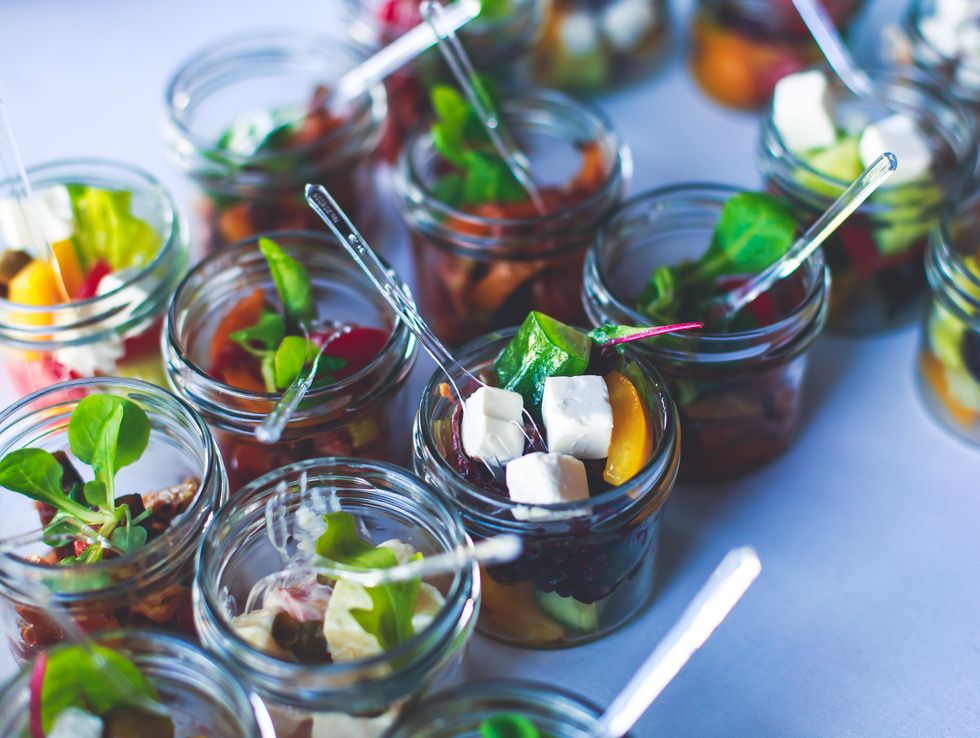
Sorry, buffet lovers — but communal food stations are officially cancelled.
“Buffets are going to be a thing of the past due to health concerns, along with communal bowls of dips, crudites and chips,” Banting predicted. “Plated meals, French Service and bars with individually presented tapas and heavy appetizers will become the new norm.”
“Large displays and grazing stations are out,” Sweeney concurred. “Instead, caterers are opting for creative displays to present individual charcuteries and appetizers that won’t mean the entire guest list is picking over the same food.”
Expressing couples’ personalities
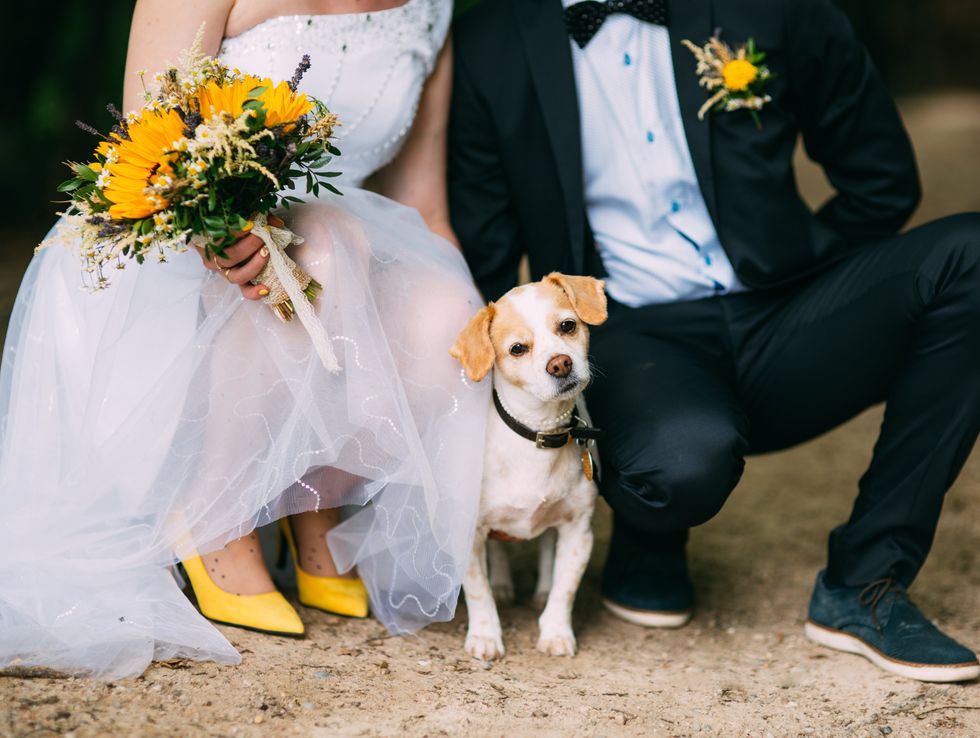
Cookie-cutter weddings are a thing of the past: prepare to see some personality.
“[Couples are] not only ready to celebrate, but really want to focus on making their wedding unique to them,” Sweeney said. “As couples become more inundated with social media and idea boards, they get to a point where they’re sick of seeing the same thing over and over again. Now that they’re able to party again, they really want to go big and for it to really speak to who they are as a couple.”
The same goes for demonstrating the pair’s principles.
“Weddings are getting back to their roots as deeply meaningful ceremonies, anchored in values,” Cleveland explained. “We can expect to see couples spending on things that they truly care about, and passing on extra things that they don’t care about. That also means how they select vendors.
“There’s never been a savvier cohort of couples marrying and they are fastidious about their budgets and where they want to spend, like selecting vendors that share their values, like supporting Black-owned and indigenous-owned businesses,” she added.
More unique experiences
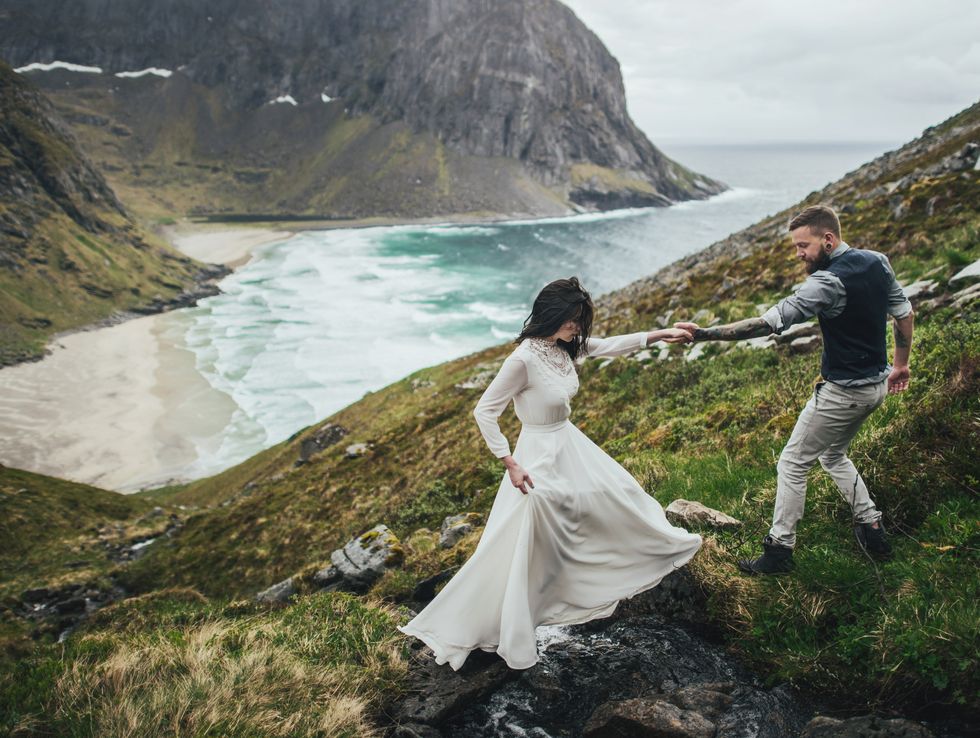
Prepare for some innovative wedding activities.
“We’re seeing less emphasis on dancing and more on experiences, such as coffee-tasting bars complete with barista, rum tasting stations or wine tasting with a sommelier, set with a lounge area where guests can relax and chat, rather than cut a rug on the sweaty dance floor,” Banting said. (Now that’s a wedding we’d like to attend.)
In Southern California, for example, “beach weddings have been on a rise with a more casual vibe and a luxury picnic to follow,” Lutkus has found.
Just be sure notto judge anyone’s “non-traditional” plans — however unusual you think they may be.
“This a weird time for literally everyone in the world,” Reing emphasised. “You friend wants a backyard wedding with a barbecue food truck? Cool! Your friend wants to elope with their partner and not invite any friends or family? Cool!”
“We shouldn’t be judging those we love for staying true to themselves,” she concluded.
Let the frenzy begin...
Top 100
The Conversation (0)













